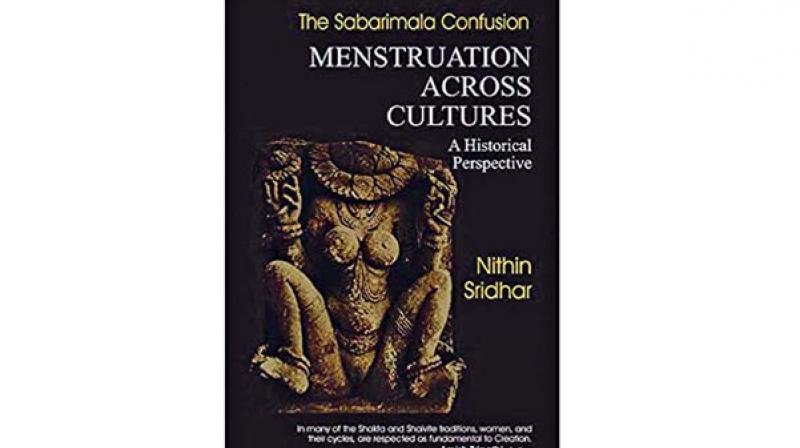Delving into cultures
Menstruation as an austerity, healing, self-purifying and sacred process needs to be celebrated, says author Nithin Srdihar\".

Amid the controversies whipped up by the issue of women's entry into the Sabarimala temple, emerges another perspective of a civil engineer turned writer, Nithin Sridhar who whipped his thoughts into shape and wrote a book named 'Menstruation across cultures'.
The Mysuru-based writer is keen about writing on spirituality, religion, culture, politics, ecology and social issues. As 2018 was coming to a close, the Sabarimala issue had erupted everywhere in the media and there was a huge hue and cry among the activists who shouted in their hoarse voices day in and day out about how this practice was anti-women and misogynistic. The narrative soon turned very toxic and the target was no longer limited to just one temple, but the entire Hindu Dharma with its cultures and traditions being called into question. This inspired Nithin Sridhar to first examine the Sabarimala issue and later dig deeper into the issue of menstruation itself.
Sridhar presents a different and a genuine outlook on the Sabarimala confusion when he discovered the mainstream narrative adopted by media on Sabarimala issue to be misleading. For one, it is wrongly portrayed that there was a blanket ban on the entry of all women into the temple, suppressing the fact that young girls and old women regularly visited the temple. Two, it is portrayed as a discrimination against women, without taking into account how the same state - Kerala - has women specific temples and practices, where men are not allowed, and that there are other Ayyappan temples in Kerala where women of all ages are also allowed, thus making the charge of discrimination quite shallow and without basis.
Three, the entire narrative is more or less built on a one-sided and often distorted account of the issue, and no voice or agency being given to Hindu practitioners and devotees of the Ayyappan temple to express their perspective. Unlike the mainstream narrative, Sabarimala temple tradition has nothing to do with menstruation per se. The restriction on the entry of women of reproductive age has been followed in consideration of the nature of deity present in the temple and to respect his vows. The very purpose of a temple is to cater to devotees and not to non-devotees. Hence, non-devotees have no locus-standi in the matter.
'Menstruation across cultures' intends to clear all sorts of confusion that are misleading people into believing various kinds of propaganda about Hindu menstruation practices. Hindu texts, be it the Veda, Dharmashastras, or Ayurvedic texts, give a list of Do's and Don'ts as part of life-style practices advised for menstruating women for protecting their health and allowing them rest, so that menstruation process can happen without any obstructions. These life-style practices have been designed for the protection of menstruating women and their health. And more importantly, to provide them rest and a "me-time" wherein they could just self-introspect and self-discover.
In an attempt to provide an overview of the issue and for better understanding and appreciation of our own cultural practices, Nithin analyses the contrast between various religions, cultures and ancient civilisations as well. There are certain commonalities and parallels, but each culture also approaches the issue with its own knowledge framework and hence has unique factors. One commonality is, almost all religions and cultures perceive menstruation as impurity. They all have specific terms, which could more or less be translated as impurity. However, in his book Nithin briefly explains what Hinduism tells us about the menstrual cycle. He says, “If I were to sum up the Hindu view on menstruation in a single sentence, then it will be that it perceives menstruation as an austerity, a healing, self-purifying, and a sacred process, that needs to be celebrated.”

